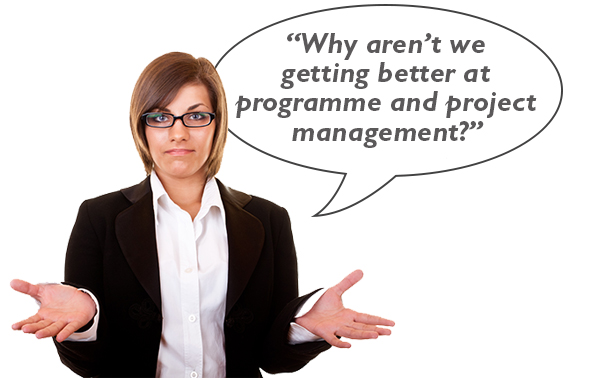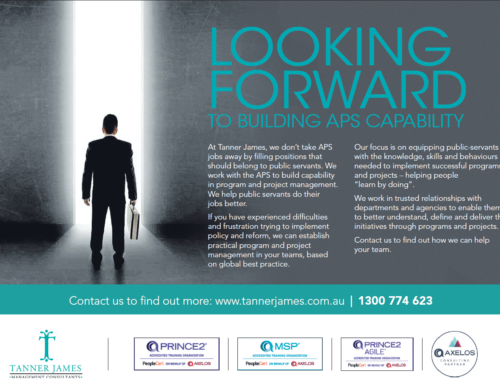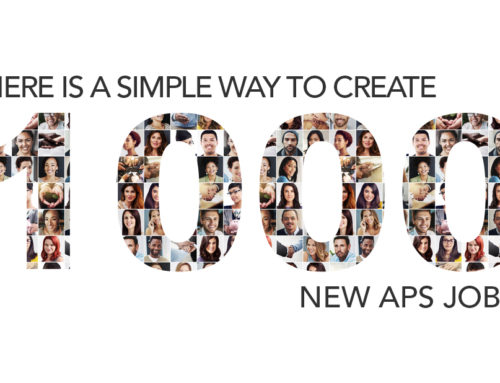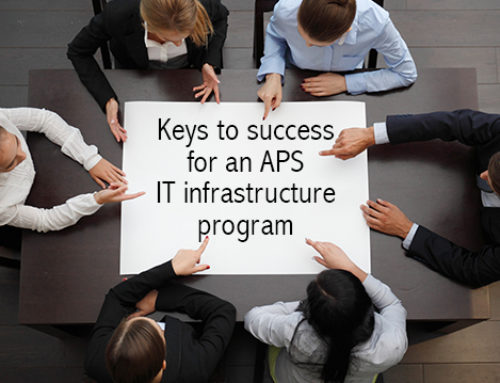“If we have been using MSP® and PRINCE2® in the public service for a while now, why aren’t we getting better at programme and project management?”
That was the question out to me by an agency head recently. It’s a great question, and one I thought worth exploring.
Are we getting better?
My gut-feeling, not evidence-based, is that we are, but only marginally.
Here’s one example. It is twenty years since we ran our first PRINCE2 training courses in Canberra (yikes!). When we came to talk about the business case, a noticeable number of participants would pipe up and say “but we’re public servants, so we don’t need business cases”. These days everyone accepts the need for a business case; but what is the quality of the business cases being produced? Often they are marginal, and if I was being uncharitable I’d say a few are simply an ambit claim for funding rather than a coherent rationale to invest in improvement.
If you prefer evidence, I don’t think you’ll have to look too hard for reports from the big firms and others saying that we are still not getting programme and project management right. And Professor Peter Shergold’s 2015 report Learning from Failure spells out the issues very plainly for the APS.
What is the problem?
To my mind the answer lies in the question: “if we have been using MSP and PRINCE2 in the public service for a while now…”. Has the APS been using MSP and PRINCE2 for a while now? I would argue it hasn’t.
What the APS has been doing is sending people of courses to “get qualified”, building home-grown frameworks based on the methods (often awash with templates), and engaging contractors who are “MSP/PRINCE2-qualified”. Project and programme managers, whether APS or contract, are then expected to use MSP or PRINCE2 to manage the programme or project on which they are working.
Well, here’s the news, am I’m very sorry for those people who have so far being nodding in agreement and saying to themselves “yes, that’s how we do it”: doing those things is not using MSP or PRINCE2. Not by a country mile.
What are we not doing?
In my blog, The one simple thing most SES officers get wrong with programmes and projects I wrote that “The dominant way SES officers should look at programmes and projects is as organisations. Temporary ones.” This is the most critical point. Programme and project management isn’t a solo endeavour. If we keep placing focus on the individual project and programme managers, we will keep getting it wrong. It is about creating temporary organisations.
Tailoring the methods is also critical. Knowing how to do so requires a good deal of experience. Tailoring doesn’t mean re-writing chunks of the manual in your own words, creating additional processes and activities, or creating turgid templates. How many people realize that PRINCE2 doesn’t contain any templates? You can tailor the methods to create your own departmental frameworks, but creating a framework isn’t the same as making sure it is effectively adopted by programmes or projects. You can also tailor the methods directly to suit an individual initiative.
Application is the other key. Skillful application of the principles and themes. There is a world of difference between the results a well-run product-based planning workshop with the right stakeholders in the room and someone sitting at their desk for days on end word-processing a “plan”.
So unless you have properly established role-based temporary organisations, tailoring based on experience, and skillful application, in my opinion you are not yet using MSP or PRINCE2. Hence you might be part of the average department or agency that is still not really getting better at programme and project management.
Want to get the governance , tailoring and application right?
Tanner James is available for short, sharp engagements to help you optimise the way you manage your programmes and projects – big or small – based on the issues raised in this blog.
If you would like to know more, please call me personally on 0407 404 688 or email me at john.howarth@tannerjames.com.au. I would be very happy to come to meet you, answer questions and provide further information.
What do you think?
Please feel free to comment on the blog itself or via LinkedIn.






Leave A Comment